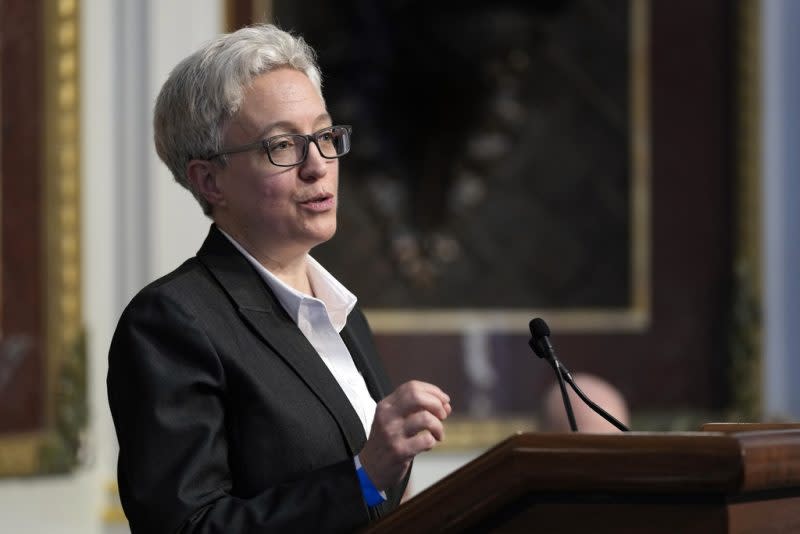Oregon recriminalizes small-quantity drug possession. Why?

- Oops!Something went wrong.Please try again later.
PORTLAND, Ore. (KOIN) – Oregon Gov. Tina Kotek (D) signed a bill Monday that will once again make it a crime to be in possession of small amounts of illicit drugs — and only years after a measure decriminalizing such offenses was passed by voters in the state.
House Bill 4002 effectively reverses Measure 110, which has received mixed feedback since it was approved by voters in 2020.
The measure, as passed in 2020, decriminalized possession of personal-use amounts of drugs including heroin, methamphetamine, fentanyl and oxycodone, among others. Offenders were instead offered the option to attend a treatment center or pay a fine, the Associated Press reported at the time.
Boeing 737 mistakenly deploys evacuation slide after landing at Oregon airport
Proponents of the measure said that offenders being offered voluntary treatment — as opposed to mandatory jail or treatment — would be more effective and result in lower relapse rates.
“What we know as behavioral health and medical professionals … is that when folks voluntarily engage with treatment, they have better outcomes,” Joe Bazeghi, who works at Portland’s Recovery Works Northwest detox center, had previously said of the bill’s intended goal.
Supporters also argued that drug users, if arrested, would only have more trouble kicking their habits — or find jobs or housing — once released from jail with criminal records.

Opponents, however, felt the measure only exacerbated the state’s ongoing drug problems by creating an environment that allowed for addiction to take hold.
“What I would say is that when you compare voluntary treatment to mandatory treatment, voluntary treatment is always going to perform a little bit better,” admitted Max Williams, the former Oregon Department of Corrections Director, in a 2023 interview with Nexstar’s KRON. “But that’s the wrong comparison. The comparison ought to be mandatory treatment versus untreated individuals on the street because they are the ones who aren’t voluntarily moving into treatment.”
“But the people who are down here right now at Ground Zero in Portland, they’re not at a position even to make that rational decision because they are currently so wrapped up in their addiction,” Williams said. “And while we let them try to figure that out, they’re doing untold damage to the community and to themselves.”
Earlier this year, the Oregon legislature voted to amend the measure, removing the provision concerning the decriminalization of small amounts of certain drugs.
Gov. Kotek signed the bill Monday, after previously indicating her intentions to do so.
The new provision will go into effect in September, and will give offenders the choice between being charged or treatment, the latter of which includes completing a behavioral health screening and participating in a “deflection program” in order to sidestep fines.
Senate Majority Leader Kate Lieber, who worked directly on crafting the legislation, said she believes Portland will see a difference on the streets in the coming weeks.
Many local advocates, meanwhile, have expressed concerns over potential racial disparities with recriminalization as well as the impact on an already-burdened public defender shortage statewide.
Do teachers outed for moonlighting in adult content have legal recourse?
The executive director of the Health Justice Recovery Alliance, Tera Hurst, previously called HB 4002 a costly step in the wrong direction.
“We do have plenty of data that the criminalization of addiction doesn’t work,” Hurst said. “When it becomes a crime again, people go back into the shadows and – especially with fentanyl – when they go back to the shadows, they die.”
In early March, Gov. Kotek claimed she would be addressing these concerns upon the passing of HB 2002, saying her office intends to “work closely with each implementing authority to set expectations, specifically in response to the Criminal Justice Center’s Racial Equity Impact Statement, which projected disproportionate impacts to communities of color and the accompanying concerns raised by advocates.”
For the latest news, weather, sports, and streaming video, head to Queen City News.

